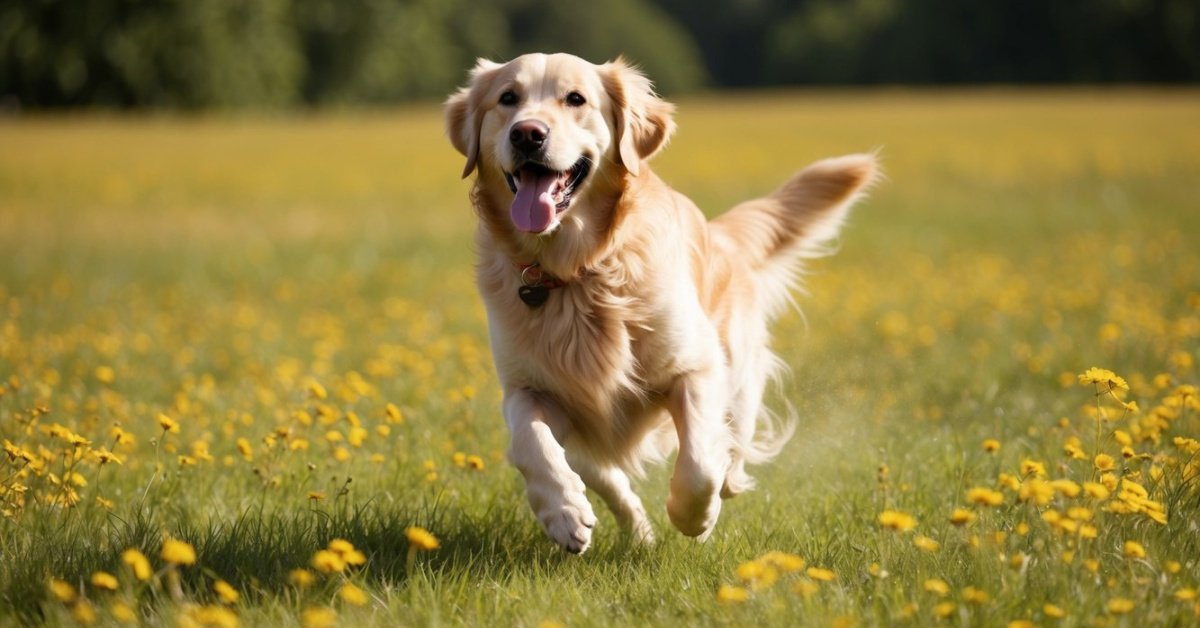Deciding to bring a Golden Retriever puppy into your life is an exciting journey filled with joy and companionship. But when’s the best time to adopt one of these lovable furballs? Many factors come into play, from the puppy’s age to your own lifestyle.
As someone who’s experienced the delight of raising a Golden Retriever, I know how crucial it is to choose the right age for adoption. Golden Retrievers are known for their friendly nature and intelligence, but their early development stages can significantly affect their behavior and training. In this article, I’ll share insights to help you determine the perfect age to welcome a Golden Retriever puppy into your home.
Factors to Consider When Adopting a Golden Retriever Puppy
Adopting a Golden Retriever puppy requires careful consideration of several factors. Understanding these elements helps ensure a successful integration into your home.
Understanding Golden Retriever Growth Stages
Understanding Golden Retriever growth stages is vital for effective training and care. Puppies undergo specific developmental phases through their early months. During the first eight weeks, they experience rapid physical and behavioral changes. At this age, puppies begin learning appropriate interactions from their littermates and mother. From eight weeks to six months, they continue to develop physically while exhibiting more social behaviors and exploring their environment. Adopting a puppy between eight and twelve weeks promotes a smoother transition. This age allows for initial training and establishes strong bonds with me as their owner.
The Importance of Early Socialization
The importance of early socialization in Golden Retriever puppies cannot be overstated. Puppies should engage with various people, animals, and environments before sixteen weeks to develop balanced behaviors. Socialization fosters confidence and helps prevent anxiety-related issues later in life. Exposing a puppy to different experiences facilitates adaptability and promotes the ability to handle diverse situations. Consistent positive interactions during their formative weeks lay the foundation for a well-adjusted adult dog. Engaging in puppy training classes or playdates with other dogs can enhance the socialization process.
The Best Age to Adopt a Golden Retriever Puppy
Adopting a Golden Retriever puppy involves understanding their developmental stages. Tracking the right age can make a significant difference in their training and socialization.
Puppies Under 8 Weeks
Puppies under eight weeks are typically not ready for adoption. During this stage, they learn essential behaviors from their mother and littermates, including bite inhibition and social skills. Without this crucial time, they may struggle with anxiety and poor social interactions. If you find a puppy this young, it’s essential to wait until they reach at least eight weeks for proper adjustment.
Puppies Between 8 to 12 Weeks
Puppies between eight to twelve weeks represent an ideal adoption age. At this stage, they begin developing their personalities and forming strong bonds with humans. Early socialization is vital; exposing them to various environments, people, and other animals helps build confidence. Engaging in structured training classes fosters good behavior habits, making the transition smoother for both the puppy and the new owner. This window of time also provides a prime opportunity for teaching basic commands and house training.
Puppies Over 12 Weeks
Puppies over twelve weeks can still adapt well, but their personalities may have already started to solidify. They may require additional effort in socialization since they miss out on early interactions. Adopting a puppy at this stage often involves addressing potential anxiety issues. While they may already have some training, owners must remain consistent and patient in reinforcing positive behaviors. If considering adoption at this age, ensure you’re prepared for possible behavioral challenges and commit to helping the pup adjust.
Preparing for Puppy Adoption
Puppy adoption requires thoughtful preparation to ensure a smooth transition for both the puppy and me. It’s crucial to gather essential supplies and create a safe home environment before bringing my Golden Retriever puppy home.
Essential Supplies for Your New Puppy
- Food and Water Bowls: Choose sturdy bowls that are suitable for a puppy’s size and easy to clean.
- High-Quality Puppy Food: Select a nutritious diet formulated specifically for puppies, ensuring proper growth and development.
- Collar and Leash: Get an adjustable collar for comfort and a durable leash for walks.
- Identification Tags: Attach tags with my contact information to the collar in case my puppy gets lost.
- Crate: Invest in a properly sized crate for safe transport and house training.
- Bedding: Provide a comfortable bed that offers my puppy a cozy place to sleep.
- Toys: Stock up on various chew toys, interactive toys, and puzzle toys to keep my puppy mentally and physically stimulated.
- Grooming Supplies: Gather brushes, nail clippers, and dog shampoo for proper grooming.
- Training Supplies: Have treats and training clickers ready to facilitate effective training sessions.
Creating a Safe Home Environment
- Puppy-Proof the House: Secure loose wires, fragile items, and toxic plants to prevent accidents.
- Designate a Puppy Space: Set up a specific area in my home for the puppy to relax and feel secure.
- Remove Hazards: Identify and remove any choking hazards or poisonous substances, including cleaning supplies and human food.
- Create Boundaries: Use baby gates to limit access to certain rooms until the puppy becomes familiar with the space.
- Secure Outdoor Areas: Ensure my yard is fenced and free from escape routes or harmful objects to keep my puppy safe during outdoor playtime.
Preparing in these ways will help foster a nurturing environment for my new Golden Retriever puppy, promoting a successful adoption experience.
Training and Socialization Tips
Training and socialization are vital for a Golden Retriever puppy’s development. Starting early sets the foundation for a well-adjusted, confident adult dog.
Basic Training Techniques for Puppies
- Positive Reinforcement: Reward good behavior with treats, praise, or play. This encourages puppies to repeat those behaviors.
- Consistency: Use the same commands and signals. This clarity helps puppies understand what’s expected.
- Short Sessions: Keep training sessions brief, around 5-10 minutes, to maintain the puppy’s attention and prevent frustration.
- Basic Commands: Focus on essential commands like “sit,” “stay,” “come,” and “down.” These create a solid groundwork for future training.
- Leash Training: Start leash training early. Teach the puppy to walk beside me without pulling, making walks enjoyable for both of us.
- Crate Training: Use crate training as a safe space for the puppy. This helps with housebreaking and provides a comfortable retreat.
Socialization Opportunities for Golden Retrievers
- Puppy Classes: Enroll in puppy training classes that focus on socialization. These classes expose puppies to various stimuli and other dogs.
- Playdates: Arrange playdates with friendly dogs. Positive interactions reinforce good social behavior and confidence.
- Public Outings: Take the puppy to pet-friendly stores, parks, or events. This helps them acclimate to new environments and people.
- Exposure to Sounds: Introduce puppies to different sounds, such as thunderstorms or vacuum cleaners, gradually desensitizing them to potential fears.
- Diverse Experiences: Encourage the puppy to encounter varied environments—car rides, walks in busy areas, or visits to friends’ homes to build adaptability.
Implementing these training and socialization strategies significantly enhances a Golden Retriever puppy’s learning journey and overall development.
Conclusion
Choosing the right age to adopt a Golden Retriever puppy is a big decision that can shape your journey together. I’ve found that adopting between eight and twelve weeks offers the best chance for a smooth transition and effective training.

« Your Ultimate Guide to the Golden Retriever Adoption Process Step-by-Step
Spotting Golden Retriever Skin Cancer Signs: Early Detection for Healthier Pets »
By preparing your home and committing to early socialization and training, you’re setting the stage for a happy and well-adjusted companion. Remember that patience and consistency are key as you navigate this exciting adventure.
I can’t wait for you to experience the joy that a Golden Retriever puppy brings into your life!











